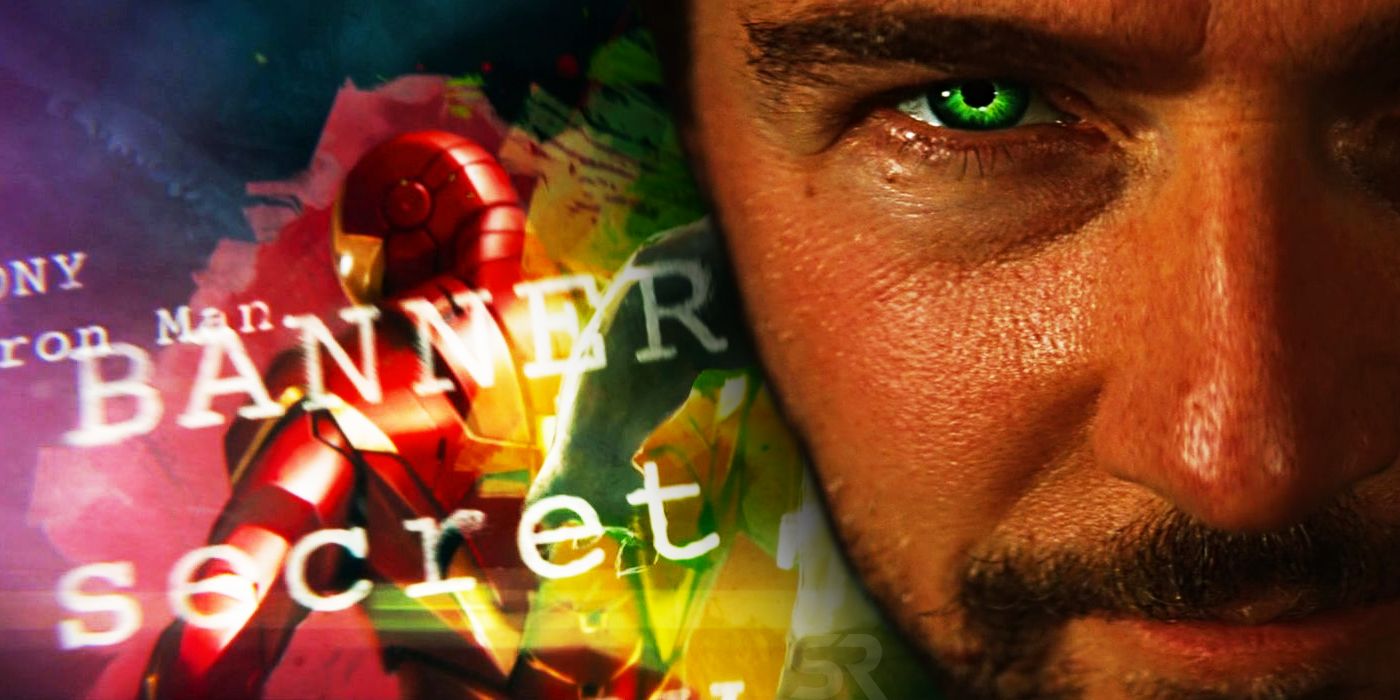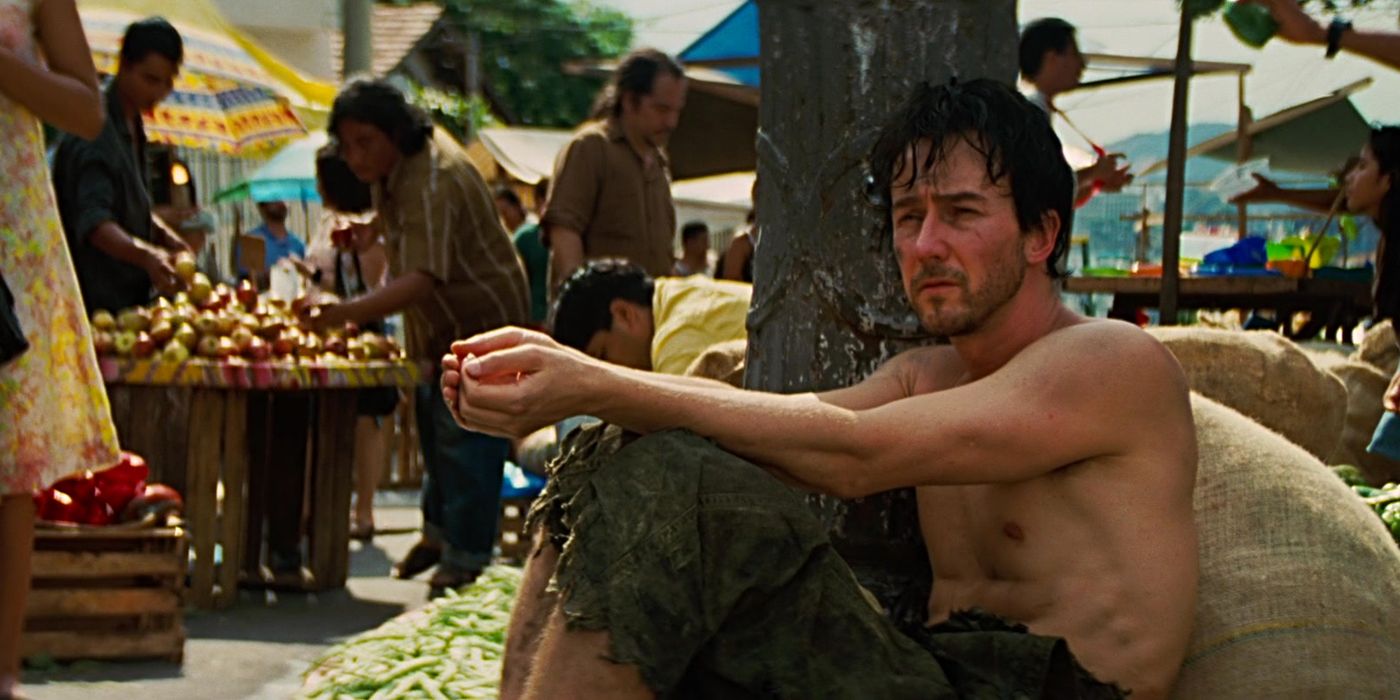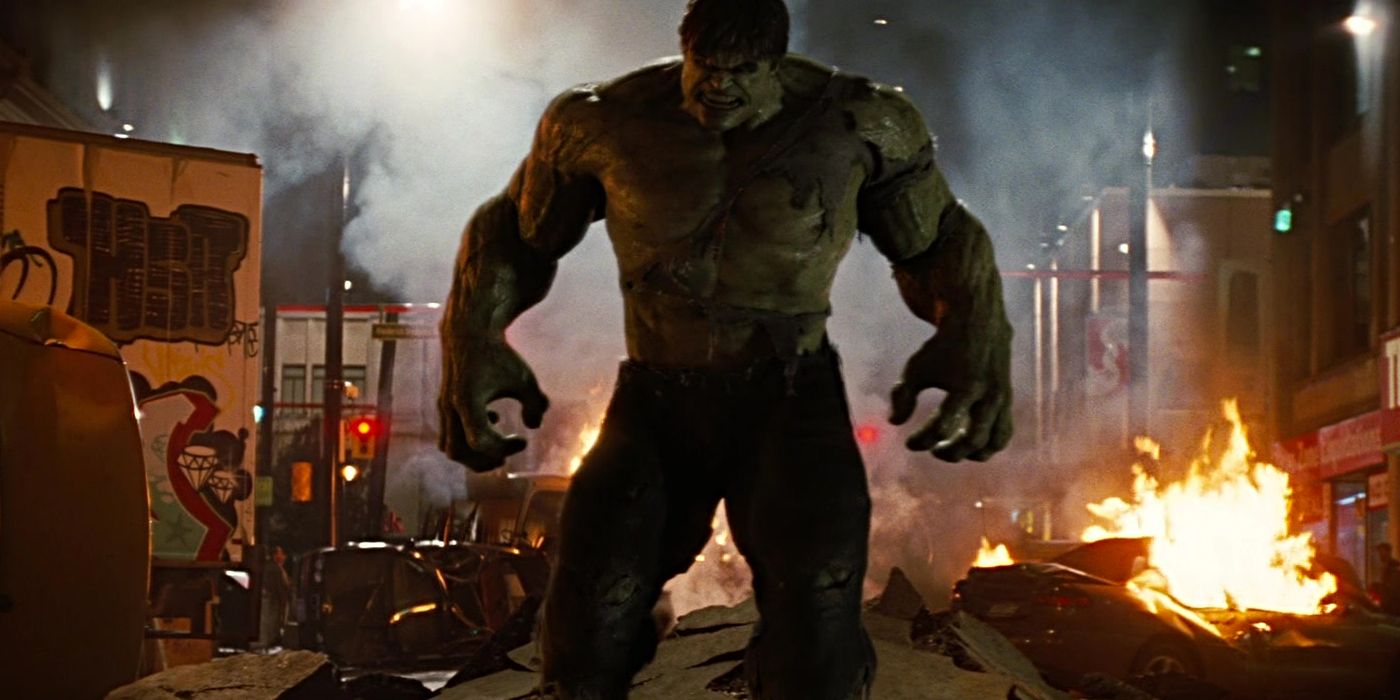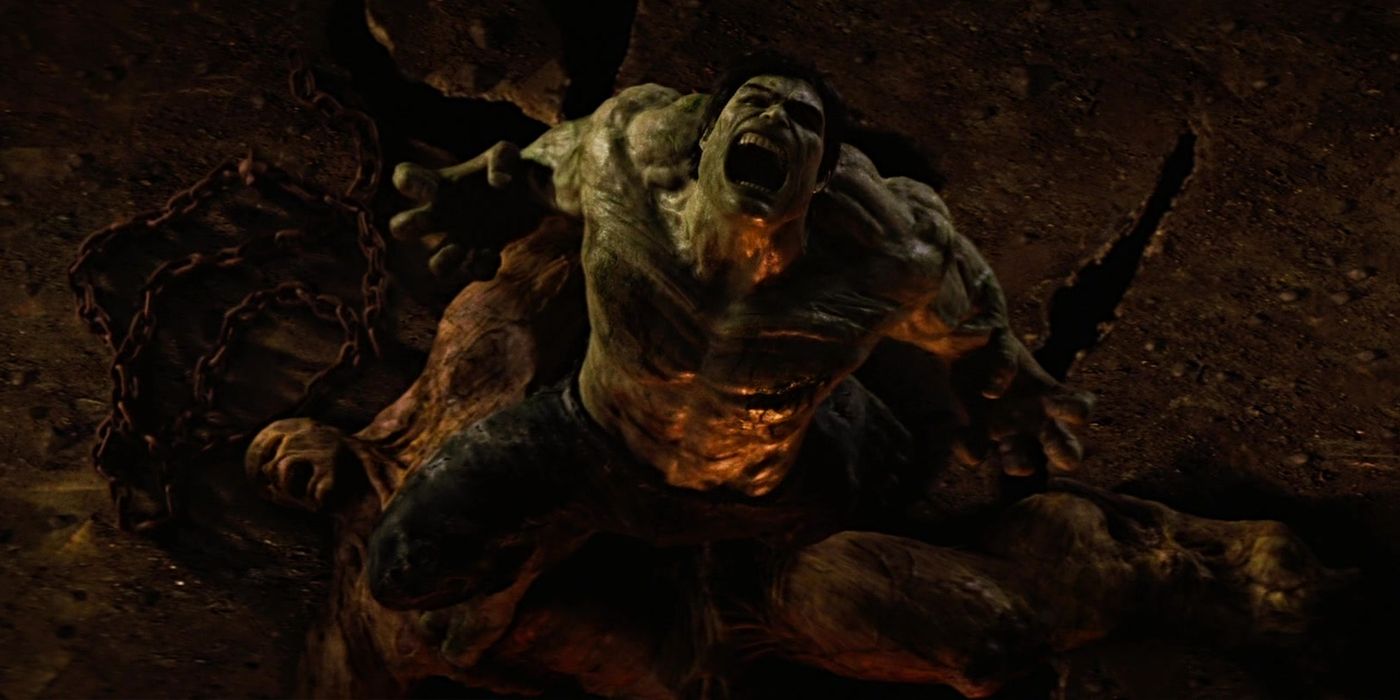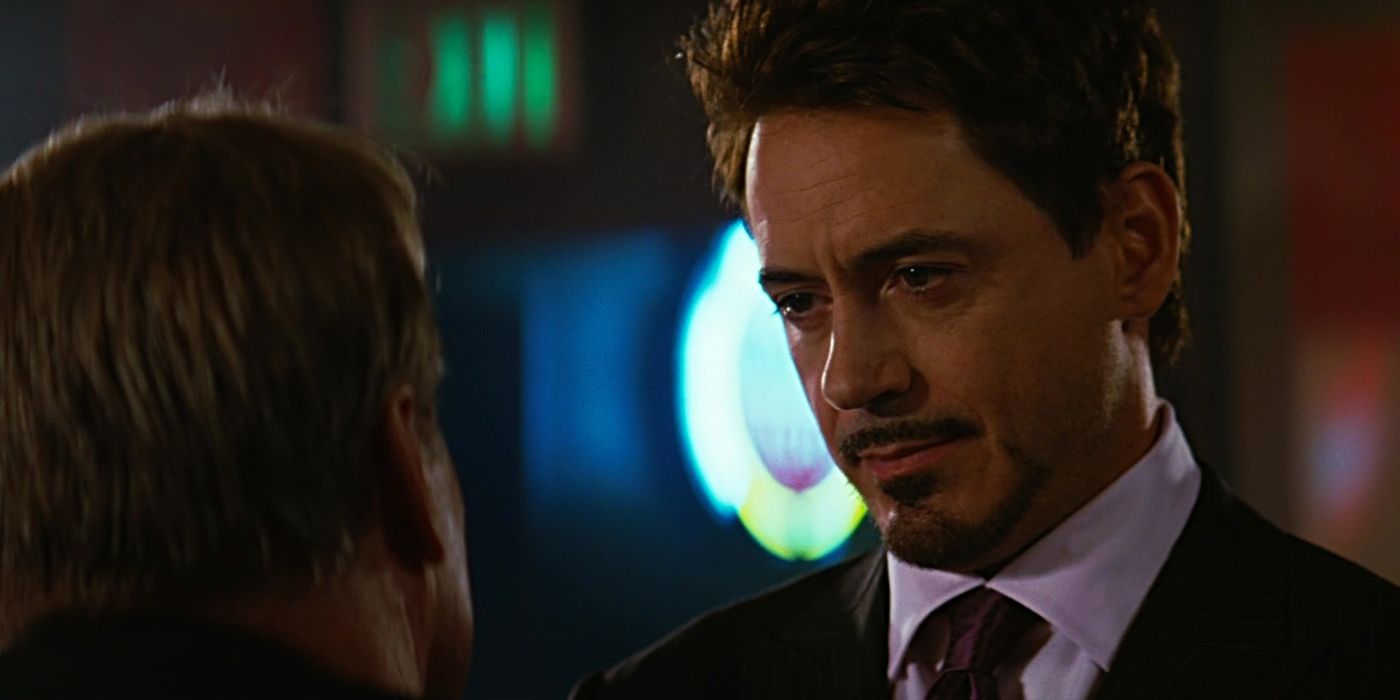The Incredible Hulk is a bizarre oddity in the MCU, and 11 years on shows just how little of a plan Marvel Studios had. This year's Avengers: Endgame is set to bring an end to the 22-movie arc Marvel's been telling for the past decade, although there's certainly one movie that feels like it was less important to that than the rest.
The second film from Marvel Studios, The Incredible Hulk released mere months after Iron Man and received decidedly less success than the Robert Downey, Jr.-fronted counterpart. The film remains the lowest-grossing entry in the MCU both domestically and internationally by a fair margin, is the second-lowest rated by critics on Rotten Tomatoes, and with a swift recast of the main character has very little direct connection to where Bruce Banner went afterward.
MCU Theory: The Incredible Hulk Has A Spider-Man: Homecoming Cameo
But rather than reflecting badly on any involved too much - it's a totally fine monster flick - The Incredible Hulk is more an artifact of the early Marvel Cinematic Universe, one that reveals a truth that the "it's all connected" touting-studio would like to not admit: Marvel didn't really know what they were doing.
- This Page: How The Incredible Hulk Didn't Appreciate The MCU
- Page 2: How The Incredible Hulk Doesn't Fit Into The MCU Properly
The Incredible Hulk Is A Remake-Prequel Of The TV Show (Seriously)
It's easy to forget a lot about how the MCU heroes were perceived before they became blockbuster stars, but perhaps the weirdest is Hulk. Looking at the original Avengers lineup, he was far and away the most well-known, and a lot of that came from the 1970s The Incredible Hulk TV show starring Bill Bixby and Lou Ferrigno as David Banner and the green goliath respectively. And while much was made at the time of release about whether The Incredible Hulk was a sequel to Ang Lee's Hulk which released just five years earlier, it's that series the film has to best connection to.
The whole idea of Bruce on the run and helping out others is the basic premise of the show, of course, but the deeper references come heavy. The downbeat theme plays multiple times to highlight Bruce's isolation, Ferrigno gets a winking cameo, and at the end Banner is going under the name "David B", a nod to the non-alliterative show lead.
That final moment is particularly interesting as it almost sees Bruce Banner take up the role of his TV counterpart. Accounting for everything cribbed from the series, The Incredible Hulk almost feels like a reboot of the show; a remake-prequel in the line of The A-Team or Starsky & Hutch of the same era. That's a weird choice in retrospect, but given the contemporary nostalgia cycle (late-70s and early-80s was in vogue) and general audiences' lack of familiarity with Hulk comics (it took multiple more appearances to get out of the basic anger setup), the logic is somewhat understandable.
Related: Why Bruce Banner Knew About Thanos (Despite Only Hulk Meeting Him)
The Incredible Hulk Is Also A Generic 2008 Blockbuster
There's more than just TV show angling that makes The Incredible Hulk so of its time. What makes Iron Man such an invincible film 20 movies later is how forward-thinking its style is; it stands out against tentpoles of the era and shoulder-to-shoulder with what we get today.
The same can not be said of The Incredible Hulk. Louis Leterrier's direction is basically a time capsule of late-2000s action filmmaking, full of saturated high contrast images, dark locales, extravagant (and not-quite photorealistic) CGI sequences, outdated tech, and very choppy character development (Betty Ross being General Ross' daughter seems to play as if it's a twist). What it really has is a grafting of monster movie tropes to the superhero (something prevalent in Iron Man too), but even that steers into the 2008 ilk.
While being generic of the time is hardly a great crime, what it does show is that with this film Marvel wasn't quite sure what their movies should be in relation to everything else that was on the market. There's a very Bondian ethos here, chasing trends and grafting it to the character. All of this is at the forefront, not the traits we know from the movies that came next. Indeed, that uncertainty runs over into it compared to the well-known Marvel formula...
Page 2 of 2: How The Incredible Hulk Doesn't Fit Into The MCU Properly
The Incredible Hulk Isn't A Good MCU Origin Story
One of the most underappreciated parts of the Marvel formula, and why their origin stories tend to follow such a similar structure in the first place, is how the films focus tightly on the hero and establish how they'll work in upcoming sequels and team-ups alike. They establish the character's personality, their defining ethos, their power-set (normally all reflected by a mirror villain) and by the end how they integrate into a team-up is done. From Iron Man to Ant-Man, this has worked incredibly well, meaning when we get to an Avengers or Captain America: Civil War, there's no need for character realignment.
Read More: Captain Marvel's Trailers Are Breaking One Of The MCU's Biggest Rules
The Incredible Hulk simply doesn't do that. The origin is skipped over in the opening credits, likely because it's so well known and was last seen in 2003 (a similar approach was taken for Spider-Man in Homecoming), so the Bruce we meet is on the run and skittishly defined. But what stands out most is how little is given about Hulk's abilities and temperament in preparation for how he would work with the Avengers. Even at the end of the film, he's still an unknown; that could offer up an interesting arc for Norton with a re-edit but in the MCU leaves a feeling of aimlessness.
It's telling that the Bruce Banner we got in The Avengers onwards had an entirely different attitude, although the main character is just part of how the setup didn't go anywhere.
The Incredible Hulk's MCU Setup Proved Wrong
Of course, The Incredible Hulk became so unimportant to the MCU after the recasting of Bruce Banner, with Mark Ruffalo replacing Edward Norton in The Avengers. However, while this (and the lack of return from Liv Tyler's Betty Ross or Tim Blake Nelson as an overtly teased The Leader) are typically the go-to examples of how disconnected it is, it's more a sidenote compared to the world building.
The Incredible Hulk is full of references to Stark Industries, S.H.I.E.L.D. and super soldiers, and its ending is directly building to The Avengers: Banner gains control of turning into the Hulk and Tony Stark visits General Ross to talk about a team he's building. There's one problem - it's not setting up The Avengers we got. The Hulk is being positioned as a threat that S.H.I.E.L.D. wants to contain, suggesting a more direct adaptation of Avengers #1 (which has Loki using Hulk to create havoc), and Tony is forming Earth's Mightiest Heroes, a responsibility removed from him in Iron Man 2 (the stinger is retconned by short film The Consultant to be a deterrent to keep Abomination under lock and key). Plainly, the gameplan set in 2008 was completely changed, and the pivot is right at the core of The Incredible Hulk.
Related: How The MCU Will Look Completely Different After 2019
That the early shared universe would have some course correction is hardly surprising; so much was in flux at the emergent Marvel Studios and the ability to adjust was key to long-term success. This was produced concurrently with Iron Man, and much would change to The Avengers as it developed and Joss Whedon reworked it. But The Incredible Hulk nevertheless shows just how little there was in terms of big narrative beyond "they team up".
But beyond the story, it's clear that in terms of relation to the past (comics or TV show), other blockbusters and the core of the character, The Incredible Hulk was out of step with the MCU as it became. And while it's easy to point to it as a mistake from Letterier or Universal (who still own distribution rights to Hulk), it's more an immortal emblem of how little Kevin Feige and co. really had planned out. That's not a criticism, more a fact of moviemaking on this level. If anything, that the direction was so unclear makes it all the more impressive that, in a few short years, The Avengers redefined everything.

